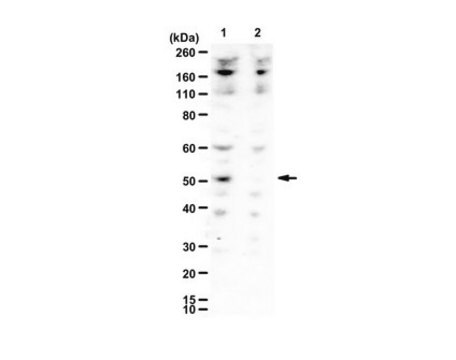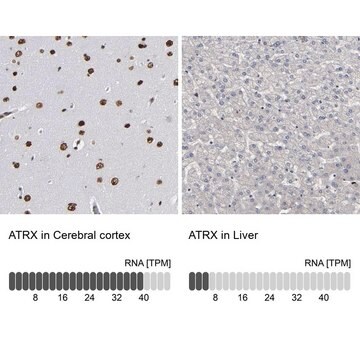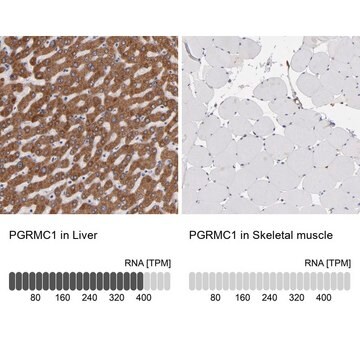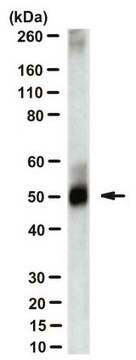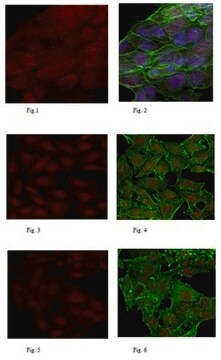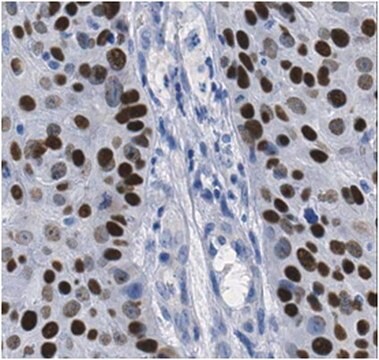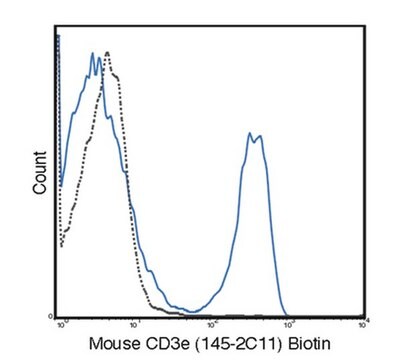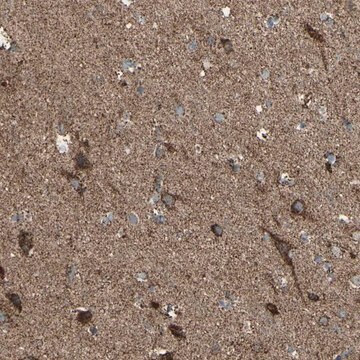MABT1497
Anti-P40 (TP63) Antibody, clone 11H1
clone 11H1, from mouse
Synonim(y):
Tumor protein 63, p63, Chronic ulcerative stomatitis protein, CUSP, Keratinocyte transcription factor KET, Transformation-related protein 63, TP63, Tumor protein p73-like, p73L, P51
About This Item
Polecane produkty
pochodzenie biologiczne
mouse
forma przeciwciała
purified immunoglobulin
rodzaj przeciwciała
primary antibodies
klon
11H1, monoclonal
reaktywność gatunkowa
human
opakowanie
antibody small pack of 25 μL
metody
western blot: suitable
izotyp
IgG1κ
numer dostępu NCBI
numer dostępu UniProt
docelowa modyfikacja potranslacyjna
unmodified
informacje o genach
human ... TP63(8626)
Opis ogólny
Specyficzność
Immunogen
Zastosowanie
Epigenetics & Nuclear Function
Jakość
Western Blotting Analysis: A 1:250 dilution of this antibody detected P40 (TP63) in A431 cell lysate.
Opis wartości docelowych
Postać fizyczna
Przechowywanie i stabilność
Inne uwagi
Oświadczenie o zrzeczeniu się odpowiedzialności
Nie możesz znaleźć właściwego produktu?
Wypróbuj nasz Narzędzie selektora produktów.
Certyfikaty analizy (CoA)
Poszukaj Certyfikaty analizy (CoA), wpisując numer partii/serii produktów. Numery serii i partii można znaleźć na etykiecie produktu po słowach „seria” lub „partia”.
Masz już ten produkt?
Dokumenty związane z niedawno zakupionymi produktami zostały zamieszczone w Bibliotece dokumentów.
Nasz zespół naukowców ma doświadczenie we wszystkich obszarach badań, w tym w naukach przyrodniczych, materiałoznawstwie, syntezie chemicznej, chromatografii, analityce i wielu innych dziedzinach.
Skontaktuj się z zespołem ds. pomocy technicznej
